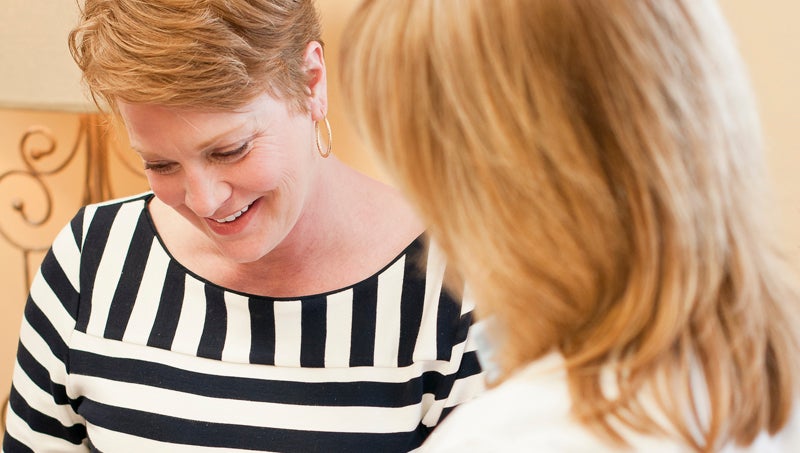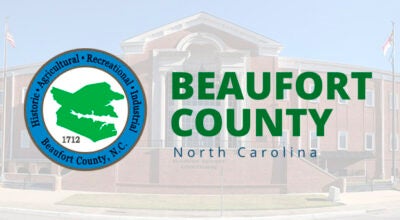Rehab therapists earn oncology certification
Published 6:52 pm Wednesday, November 29, 2017

- STRONG WOMAN: Dr. Ainsley Rusevlyan, a podiatrist, participates in a consultation. Rusevlyan is also a cancer survivor. (Vidant Beaufort Hospital)
Ninety-three rehabilitation therapists in the Vidant Health system recently received Oncology Care Certification.
The certification is the result of a 24-hour, three-day training workshop, focusing on the role of physical, occupational, speech and recreational therapies in helping cancer patients heal. Carmen Thompson of Monarch Continuing Education led the training.
Almost 150 therapists from eight hospitals and home health services participated in at least part of the training. Some could only attend a couple of days of training, while others participated in an intensive, one-day “boot camp.”
“This program was designed to increase the therapists’ knowledge of surgical techniques, chemotherapy options and radiation therapies used to treat cancer and how these cancer treatments affect the patient. Information was presented regarding ways to standardize and measure progress for the patient,” a press release stated. “Hands-on lab time was dedicated to improving the treatment skills of the therapists for the oncology patient.”
There were 15 representatives from Vidant Beaufort Hospital, according to Maria Yost, manager of rehabilitation services.
Yost said there were therapists there from all backgrounds with experience ranging from one year to decades.
“People of all backgrounds, but none of us had this credentialing. … This was kind of a good starting point, a leveling point, for everybody to get this certification,” she said. “It made it so that any of our therapists could have that higher level of knowledge for their patients.”
Oncology Care Certification is a voluntary program, but Yost said it was important to participate because of how often medical “best practices” change. Ten years ago, experts recommended waiting to start rehabilitative therapy until after cancer treatment. However, it is now encouraged during the treatment process, as it helps patients respond better to treatment, according to Yost.
“It’s not just physical therapy. It’s occupational therapy and speech therapy, as well,” Yost said. “It just helps us be more confident in treating the patient.”
She said this training is part of a larger goal to provide more resources to patients in rural communities, so they don’t have to travel to Greenville for specialized care. Having that extra knowledge benefits the patient in the end and gives them the tools to fight the disease.
“Rehab has, kind of, always played a part, but it gets us involved a lot earlier,” Yost said. “It helps them (the patients) feel more in control of what is going on.”





